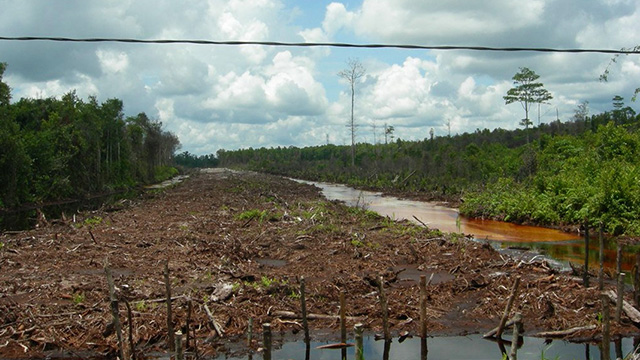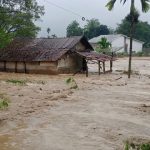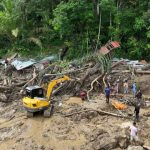Jakarta (Greeners) – Experts predicted dry and burned peatlands was responsible for at least five percent of total carbon emission released by human leading to climate change in addition to direct impacts on economic and health due to the smokes.
Indonesia covers the largest tropical peats in the world, followed by Democratic Republic of Congo, Peru, and other tropical countries.
For the importance of protection and preserving tropical peats for global interests, United Nation Environment Program (UNEP) initiates the establishment of Global Peatland Initiatives (GPI).
GPI comprises of forested nations and tropical peatlands, multilateral organization, non-governmental organization with concerns and commitment on protection, restoration, and sustainable peatland management.
READ ALSO: BRG: Social Forestry and Agrarian Reform To Develop Peatlands In Indonesia
Tim Christophersen, Senior Programme Officer for Forest and Climate Change, UNEP, said that GPI was launched at Morocco Climate Change Conference, last year.
Peatlands issues, said Christophersen, were limited and there was not sufficient knowledge on the importance of peat ecosystem for world’s climate security.
As a result, peats, most vulnerable ecosystem and rich in biodiversity, have been turned into plantation concessions by massive draining methods.
This type of land use change is not suitable and wise for peatlands. Hence, nations with peats need to take firm steps to protect the areas.
“It is in line with nations’ commitments to tackle climate change as agreed in Paris Agreement,” he said as quoted in an official statement, in Jakarta, on Monday (15/5).
Indonesia, as explained by Minister of Environment and Forestry Siti Nurbaya, is the first nation to implement massive peat restoration and reduce greenhouse gas emission up to one giga tons.
Minister Siti said that Indonesia was in the right track to meet Paris Agreement compare to other nations.
READ ALSO: 2.7 Million Hectares of Forest Loss After Six Years of Moratorium Implementation
GPI, she added, becomes the foundation of which Indonesia is the example for the world to restore peats and low land landscape where peat domes exist.
Indonesian government commitment to host GPI meeting is the fundamental step for the initiative.
“Indonesia will not back down to protect its peats and restore damages. To be able to do it, it would require government’s firm in law enforcement,” said Minister Siti.
Furthermore, she said the government was ready to cooperate with national and international partners, including civil society and business world, which currently struggling for a better peatland management.
Hence, Global Peatlands Initiative is a good step in protecting peats and to achieve public interests.
Head of Peatlands Restoration Agency, Nazir Foead, said that GPI had opened up big opportunities for the agency for lesson learned from other countries on appropriate, effective and efficient peats protection and restoration.
The forum, he added, was important for the future of global climate stabilization.
“I hope GPI partners will continue to grow and the initiative will bring significant impacts,” he said.
The second GPI partners meeting was attended by representatives of Democratic Republic of Congo, Peru, UN agencies, donors, universities and civil societies.
The meeting aims to update database on global peatlands and compile experiences on peatland management and restoration strategy.
Reports by Danny Kosasih



















































